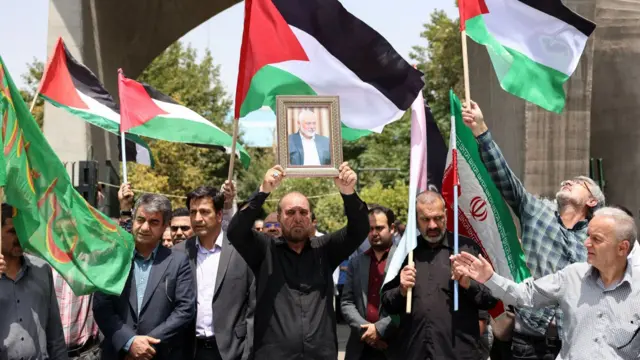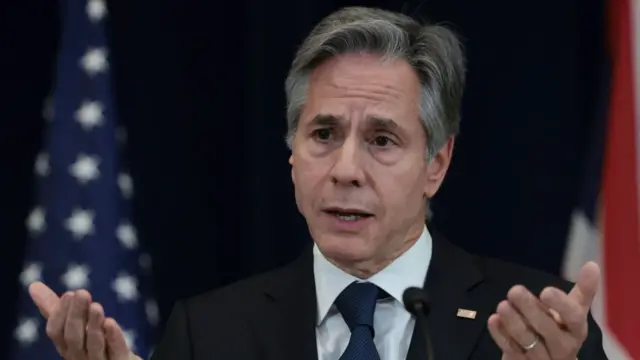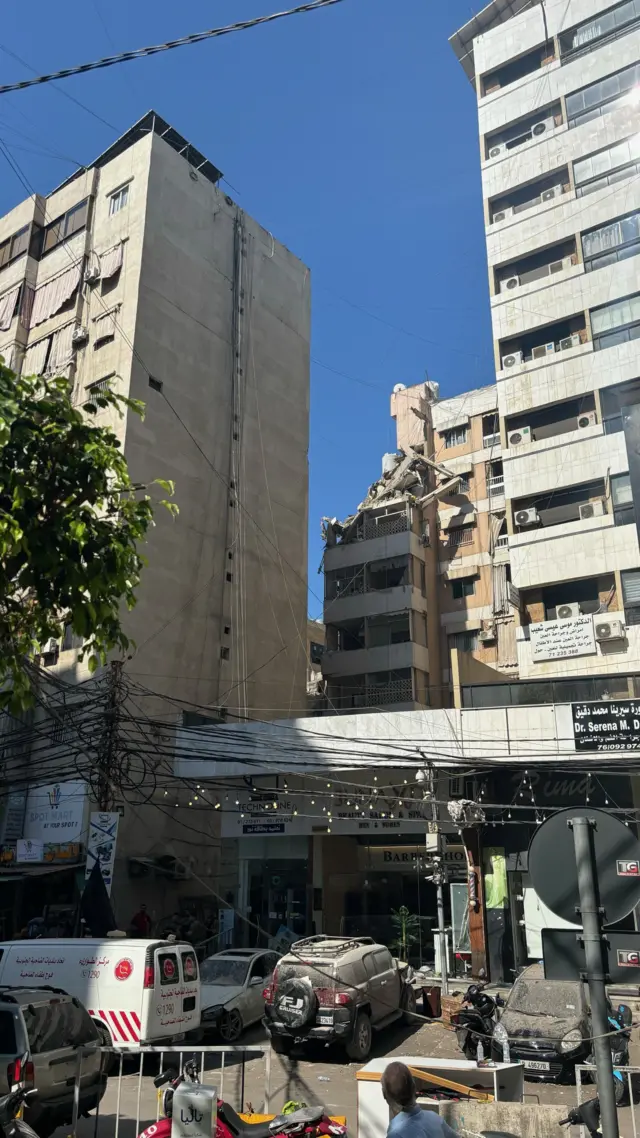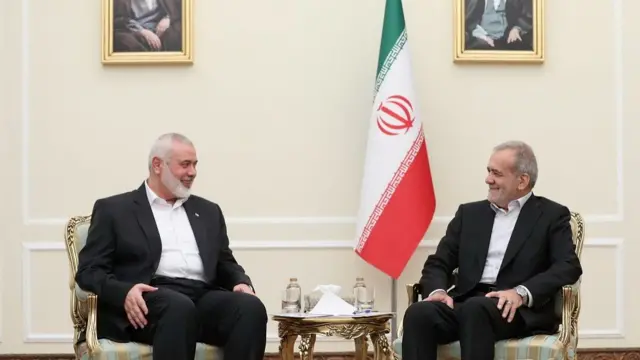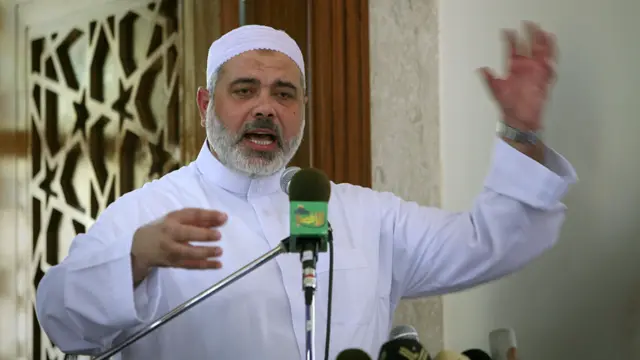Hamas now asking who's responsible for security failurepublished at 12:35 BST 31 July 2024
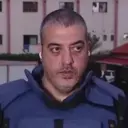 Rushdi Abualouf
Rushdi Abualouf
Gaza correspondent
This morning I spoke to three senior Hamas officials, and they were all in a state of shock.
They gave different - quite confusing - accounts as to what exactly happened in the Iranian capital, Tehran, in the early hours of today.
They said they were very surprised by the attack, that Haniyeh had visited the city many times before and must have felt safe going there.
And the question now arises as to who should be responsible for this major security failure - and was it the right decision for Haniyeh to be in Tehran in the first place?
